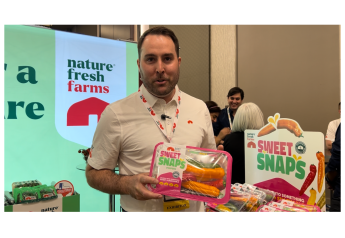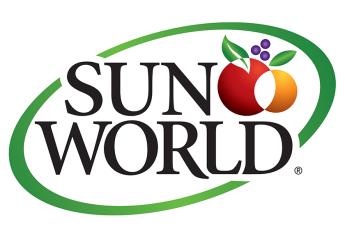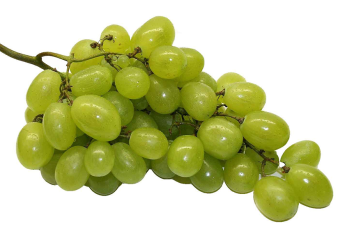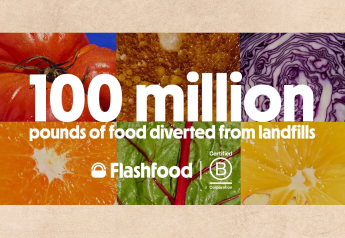Don’t toss onion skins: They’re full of antioxidants and they help preserve fish
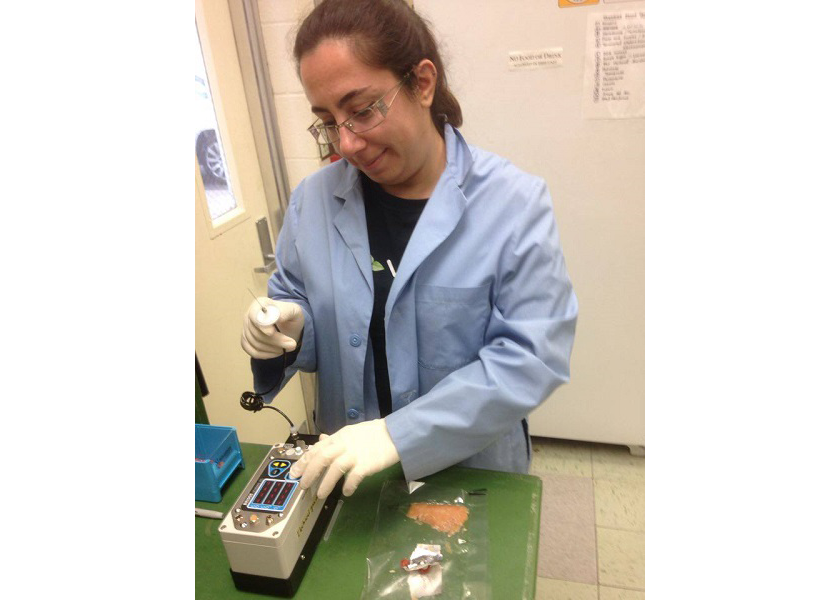
Usually, when you peel an onion, you toss out the skin. When you do that, you lose the skin’s antioxidants, and the waste goes to the landfill.
University of Florida researchers may have found a way to minimize food waste -- and keep fish fresh, leaving the consumer with healthier fish to eat, said Senem Guner, a former doctoral student in the UF/IFAS College of Agricultural and Life Sciences. For her study, Guner focused on salmon.
Fresh salmon is good for about two days on the market shelf because it is a fatty fish. In the UF/IFAS-led study, untreated minced salmon started to spoil after the first day because mincing increases the rate of oxidation. The best package application in Guner’s experiment increased this period to almost 10 days.
“For fish, freshness is not only about taste,” said Guner. “If the fish is going bad, foul odors, color and even taste warn us not to consume it. If we minimize the risk from the beginning, we can produce healthier and safer food as well.”
To find her conclusions, Guner led a newly published study in the journal Packing Technology and Science that looked at how to use onion skins to preserve fish. The study is part of her Ph.D. dissertation, which she completed under the supervision of UF/IFAS food science Professor Emeritus Marty Marshall.
For the study, researchers extracted compounds from onion skins by keeping them in hot water for about 80 minutes and then filtering the skin. With this process, bioactive antioxidant compounds (polyphenols) were extracted to be purified and/or concentrated by using hot water.
Then, they spread the skins’ extract over the salmon.
The water is important because it’s easy to obtain, harmless to humans and does not interact with the polyphenols, Guner said. Thus, they eliminated other chemical compounds – including sugars, essential oils and more -- to focus on polyphenol activity.
Scientists then used the extract and a food-packaging system known as modified atmosphere packaging (MAP) for their experiment. MAP changes the internal atmosphere of a package to improve its shelf life. It’s commonly used with meat, fish, poultry and dairy.
By using increasingly warm water, scientists recovered polyphenols and antioxidants. That led them to conclude that a skin extract and MAP application might increase the shelf life of salmon.
The extracts mixed with minced salmon and the mixture was immediately packed in a modified atmosphere package.
“Her work shows that onion skins contain many bioactive compounds that can be used as value-added ingredients in food-processing systems, especially seafood,” Marshall said.
When UF/IFAS researchers started the study, they knew fruits and vegetables contained a lot of polyphenolics, which serve as antioxidants, he said.
Those fruits and vegetable processing industries produce waste, Marshall said. While of some of that is used for animal feed, much of it goes to landfills. Although this waste is biodegradable -- similar to composting -- it still presents an environmental burden on community landfill systems, Marshall said.
With the research, scientists are minimizing waste.
“Consumers and food producers use conventional methods such as cooking, blanching and sterlizing to increase shelf lives, but some important compounds, such as antioxidants, proteins, vitamins and minerals are lost on the way,” said Guner, now an assistant professor of food chemistry at Afyon Kocatepe University in Turkey. “We need to use our food sources logically since the human population increases faster than food sources do.”
Added Marshall: “If we can extend the shelf life for a Grade A product even by a few days, this would be in an enormous economic benefit for fresh seafood markets. Senem’s work demonstrates that in conjunction with MAP technology, the shelf life of salmon can be increased by a few days, thereby aiding the seafood industry and extending the quality for consumers.”


